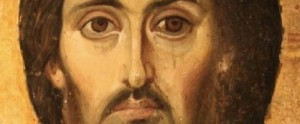 Last week I was putting up a shelf using a molly bolt. These are bolts that you use to hold something in drywall. I took my drill put the 1/2 in. diameter hole into the wall, then put in the molly. Theoretically this is to hold the screw so then you can hang your self. This particular molly bolt I had purchased was heavy duty, made to hold 100 lbs. After I installed the molly I screwed the bolt into the metal anchor, but the screw just turned and never tightened. Very frustrating! It took three more bolts and two trips to Lowes to get the thing to work.
Last week I was putting up a shelf using a molly bolt. These are bolts that you use to hold something in drywall. I took my drill put the 1/2 in. diameter hole into the wall, then put in the molly. Theoretically this is to hold the screw so then you can hang your self. This particular molly bolt I had purchased was heavy duty, made to hold 100 lbs. After I installed the molly I screwed the bolt into the metal anchor, but the screw just turned and never tightened. Very frustrating! It took three more bolts and two trips to Lowes to get the thing to work.
Interestingly, Martin Kähler (1835-1912) once compared “historical science” in the study of Jesus to “a never-ending screw”. By which he meant that the assured results of one generation’s historical scholarship are disputed by the next. And, so, they cannot serve as a reliable basis for a believer’s faith. His conclusion was: facts about the person and work of Jesus cannot rest on the changing results of historical criticism of the gospels. We can never reach beyond provisional validity and probability Kähler beleived.
While I would not wish to go all the way with Kähler, his concern about to what one looks for surefooted conclusions about Jesus, is not misplaced.
Nevertheless, I would question the tactic assumption of the necessity of certainty in faith. The quest for a vantage point that can apprehend Jesus beyond provisional validity and probability is misguided given the condition of our humanness. We’ve attempted of course to find certainty in doctrines of inerrancy (“if the Bible is fully trustworthy we can be certain of our faith”) or revelation (“if God revealed himself in person of Jesus we can have certainty”) or in subjective feeling or experience (“if I experience something, I can be certain), but even though these all in one way or another have the potential to strengthen faith, these are but grasping for wind. Of what, in anything, can a human in this life have perfect certainty? Should the arena of faith be different?
Even in something for which I have the most human certainty, there is are shades of doubt. Not only does my body not always trust Karla’s words when she speaks words of respect, admiration and love for me (and this is to Karla’s frustration), but also since Karla is independent of me, I cannot be without any shadow of doubt. It is at least in the realm of possibility, although extremely unlikely to be sure, that she is deceiving me. I hear, as you do, almost weekly of spouses who awaken to a reality about their wife or husband they were completely unaware — be that of an affair, a secret habit, or, in the case of the recent death of Robin Williams, the depth of depression.”Certainty”, in the words of Daniel Taylor, is “a myth”.
So Kähler was right that historical criticism is a “never-ending screw”, but certainty, more fundamentally, is the “never-ending screw” for faith.











